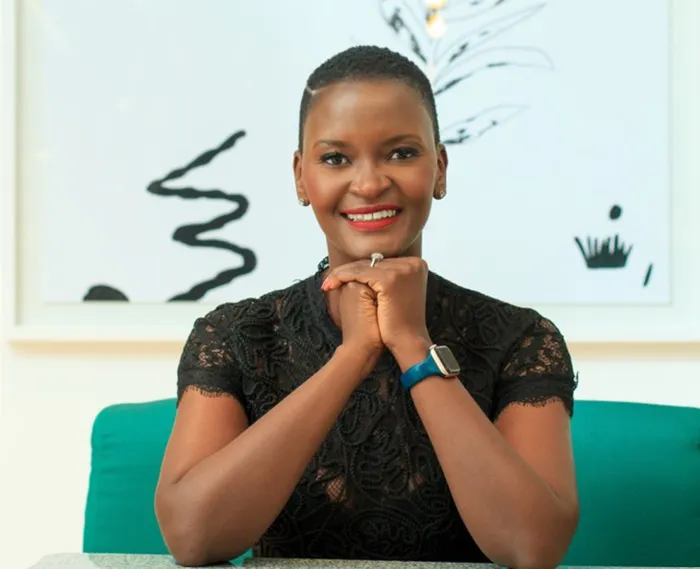Meet one of the co-founders of Yugrow as company expands by leveraging AI to propel women into leadership roles

Kele Boakgomo is one of the founders of Yugrow. Image: Supplied
Yugrow, a South African female-led business is taking advantage of artificial intelligence (AI) to expand its network globally, helping organisations close the female leadership gap.
Co-founded by Kele Boakgomo and Yolanda Nobanda, Yugrow is a behaviour tech platform tailored for women, promoting growth through personalised micro-actions, a robust support network, and intelligent coaching featuring seasoned female executives.
The company boasts clients such as Accenture, Vodacom, and Rand Mutual Assurance.
This home-grown tech start-up already supports women across Brazil, Egypt, Kazakhstan, Turkey, the UK, and South Africa.
Boakgomo said Yugrow is seeking to expand its reach into Asia to address the region’s unique societal and cultural challenges.
“With many countries in Asia being considered emerging markets, including China, India, Indonesia, Korea, Malaysia, the Philippines, Taiwan, and Thailand, we feel that we can leverage not only our expertise in the developing world but also cutting-edge technology to help upskill women so they can take on leadership roles,” Boakgomo told Business Report.
The World Economic Forum last month found that the estimated investment needed to achieve gender equality for all developing economies could reach up to $7.8 trillion (R141 trillion) a year.
“With AI, we feel we can help companies make a quantifiable measurement into leadership training without being burdened by excessive costs,” Boakgomo added.
The platform offers a professional development and coaching solution designed to enable women to excel in leadership positions, providing organisations with a tangible return on their investment.
The small business integration of AI into its coaching programs personalises the development experience, offering continuous support that enhances the journey of self-improvement.
AI algorithms analyse data from coaching sessions, identify patterns, and tailor programs to individuals’ areas of opportunity. It also provides data and insights about the women on the programme to enable quality conversations on career opportunities.
“Our goal is to serve women on a global scale, building a successful tech business out of Africa that inspires other female entrepreneurs. We believe technology is the ultimate equaliser,” Boakgomo said.
Boakgomo said that the Yugrow vision dated back to 2017, even though her and Nobanda only officially hung up their corporate hats in 2020.
“Our vision was inspired by my experience in global corporate roles and the challenges women face in advancing their careers,” Boakgomo said.
Boakgomo added that Covid-19, which started just after the company was officially formed, led them to review their business strategy and take it outside South Africa’s borders using the technology that was fast-tracked so people could work from home.
Yugrow’s use of technology aims to democratise career success. Boakgomo notes that, while the gender gap has been closing at 0.035% per year over the past two decades, achieving economic gender parity by 2030 requires an annual change rate of 41%, a goal technology can help reach.
Boakgomo’s personal career challenges informed her understanding of the nuanced barriers women encounter.
“As I advanced in my career, I saw the structural obstacles hindering women’s growth and performance, despite their technical abilities. My passion for technology and women’s development led to Yugrow’s creation,” she said.
Operating on a B2B model, Yugrow partners with corporations to empower their female talent.
“We are humbled by our impact, women on the Yugrow platform have expanded their roles, pivoted careers, gained promotions, and made significant impacts in their current roles. Our global ambition, enabled by technology will enable us to play our role in closing the economic gender gap, and shape inclusive societies,” Boakgomo said.
BUSINESS REPORT